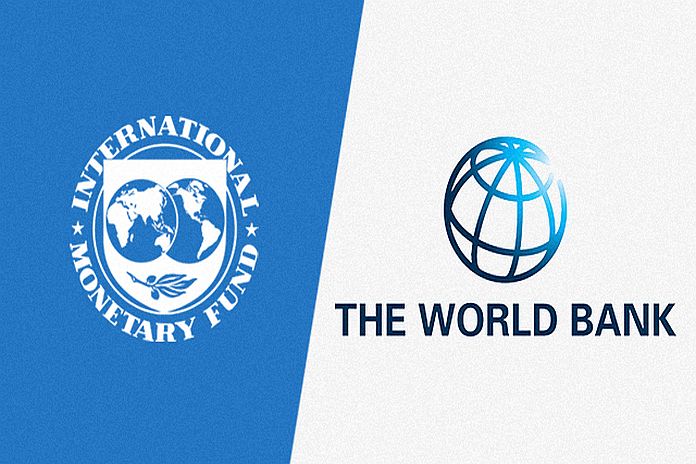As global crises continue to dominate headlines, the International Monetary Fund (IMF) and World Bank are set to convene their annual meeting starting Monday in Washington, D.C. This gathering will convene finance ministers, central bankers, and representatives from the financial sector and development organizations, running through Sunday.
Key discussions will focus on pressing issues, including a looming debt crisis in lower-income countries, climate change, and poverty alleviation.
A significant agenda item is the IMF’s release of a new global economic growth forecast, scheduled for Tuesday. IMF Managing Director Kristalina Georgieva has indicated that the medium-term outlook for the world economy remains lackluster, neither sharply declining from pre-pandemic levels nor promising enough to inspire confidence.
In a related initiative, the World Bank has called on the Nigerian government to increase its investments in nutrition programs, emphasizing the potential for substantial economic returns. The global financial institution estimates that every dollar spent on nutrition could yield up to $23, underscoring the critical importance of addressing malnutrition, particularly among vulnerable populations.
This appeal comes amid alarming rates of child stunting and maternal anemia in Nigeria. UNICEF reports that over 11 million children under five are affected by stunting—approximately 35% of the child population—impacting cognitive development and future productivity.
Additionally, more than 50% of pregnant women in Nigeria suffer from anemia, heightening risks for premature births, and low birth weights, which further strain the nation’s healthcare system.
The World Bank’s Investment Framework for Nutrition highlights that investing in nutrition is not just about health; it is intrinsically linked to economic growth. Addressing child malnutrition could yield even greater returns in Nigeria, reinforcing the notion that underproductive children lead to underproductive adults.
To tackle these nutrition-related challenges, Nigeria must explore innovative funding strategies, such as reallocating agricultural subsidies to promote healthier diets, imposing taxes on unhealthy foods, and utilizing climate funds to combat food insecurity. Collaborations with the private sector and the issuance of social bonds could also bolster nutrition programs.
Also, stricter regulations on food fortification, enhanced healthcare services, and public awareness campaigns promoting dietary diversity are essential. Initiatives like promoting exclusive breastfeeding and fortifying staple foods with essential nutrients are crucial steps in the fight against malnutrition.
As the 2025 Nutrition for Growth Summit approaches, Nigeria has a significant opportunity to refine its nutrition strategy. Scaling up efforts to combat child stunting and maternal anemia will not only improve health outcomes but also enhance economic productivity and mitigate the long-term costs associated with malnutrition.
With the backing of the World Bank and support from the international community, Nigeria stands poised to improve its health metrics, boost labor productivity, and contribute to broader economic development goals, aligning with the Sustainable Development Goals (SDG 2) to eradicate hunger and improve food security and nutrition.





